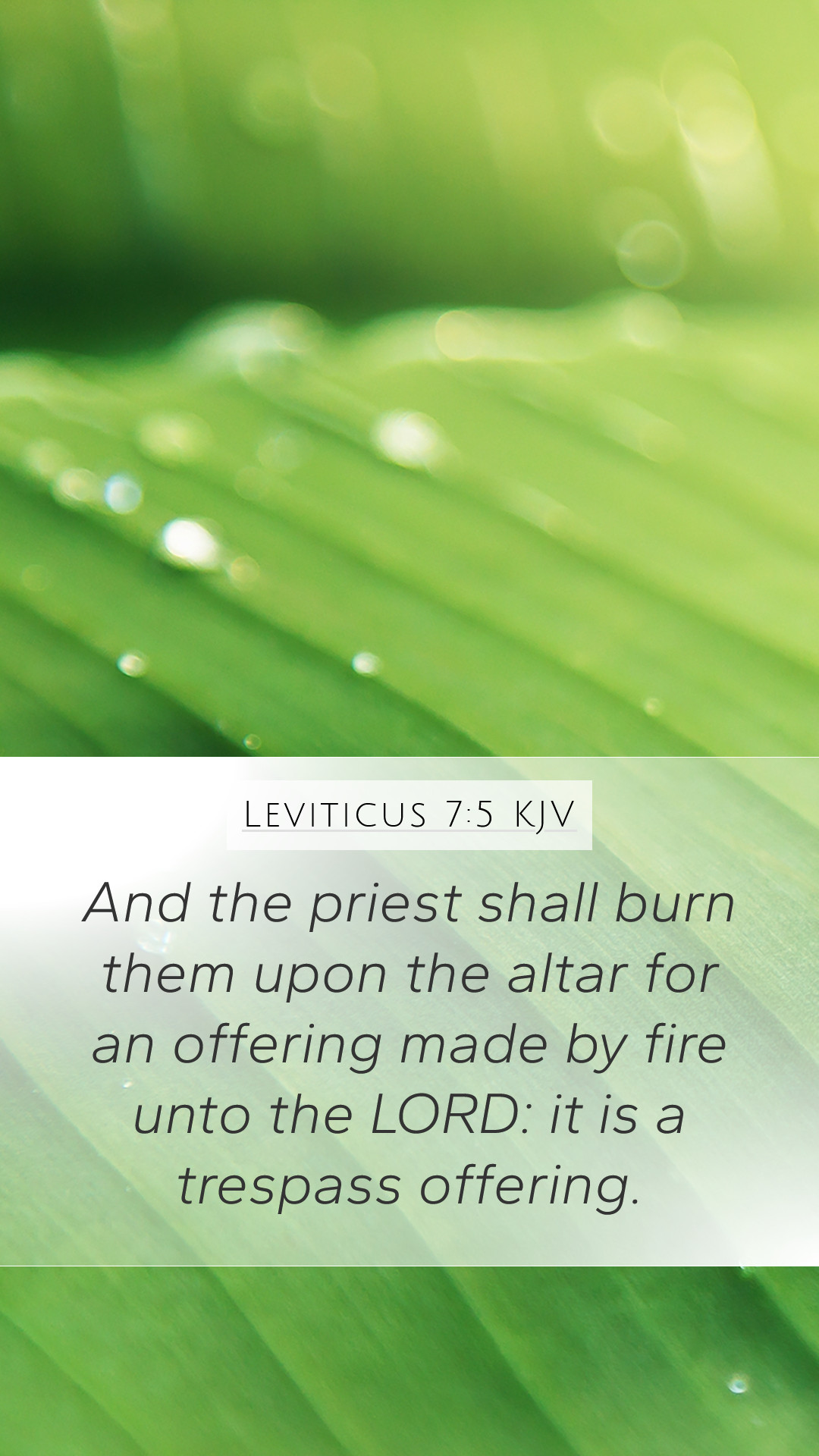Bible Verse Commentary on Leviticus 7:5
Verse Reference: Leviticus 7:5 - "And the priest shall burn them upon the altar: it is the food of the offering made by fire for a sweet savour: all the fat is the Lord's."
Understanding the Verse
The verse from Leviticus 7:5 reveals significant insights into the sacrificial system of ancient Israel. It emphasizes the crucial role of the priest in the offering process, the act of burning fat, and the concept of offering food to God. This passage can be explored from several angles, drawing from various commentaries to enhance Bible verse understanding.
Insights from Commentaries
-
Matthew Henry's Commentary
Matthew Henry expounds that the act of burning fat upon the altar symbolizes the best parts of the offering being devoted to God. The emphasis on "sweet savour" indicates that God takes pleasure in the offerings of His people. The fat, often considered the richest portion of the animal, signifies the value and sincerity of the offering.
-
Albert Barnes' Notes
According to Albert Barnes, the priest's role is pivotal as a mediator between God and the people. The verse indicates that the offering's pleasing aroma is a metaphor for the acceptance of the sacrifice. Barnes highlights that in the context of the Old Testament sacrificial system, these rituals were critical for maintaining a holy relationship with God.
-
Adam Clarke's Commentary
Adam Clarke discusses the significance of fat in sacrifices, noting that it was regarded as the choicest part. He draws attention to the fact that God requires the best offerings from His people, as an expression of gratitude and reverence. Clarke's insights help in understanding the cultural context of offerings in ancient Israel.
Meaning of Bible Verses - A Deeper Look
This verse not only communicates the technical aspects of sacrificial offerings but also imparts theological truths about devotion, holiness, and the relationship between the believer and God. It reminds believers that God desires our best and our sincere devotion. The act of sacrifice symbolizes submission, recognition of human sinfulness, and the need for atonement, all of which are core themes in Scripture.
Applications to Daily Life
Leviticus 7:5 invites modern readers to reflect on what it means to offer their best to God. In practical terms, this could mean dedicating time, resources, or talents to serve others and further God's kingdom. The essence of sacrifice transcends the physical act and calls for a heart aligned with God’s will.
Cross References
- Exodus 29:18 - Discusses the burning of offerings on the altar.
- Leviticus 3:16 - Affirms that the fat belongs to the Lord.
- Hebrews 13:15 - Encourages offering a sacrifice of praise to God.
Conclusion
In summary, Leviticus 7:5 serves as a vital passage in understanding the sacrificial system and the nature of offerings in the Bible. Through historical context and careful analysis, believers can grasp its significance and apply its lessons in their spiritual lives. This study illustrates how interpreting Bible verses, such as in this case, adds depth to our understanding of Scripture and encourages meaningful worship and service.
By engaging with the insights of public domain commentaries, one can enrich their Bible study, deepening both knowledge and personal application.


